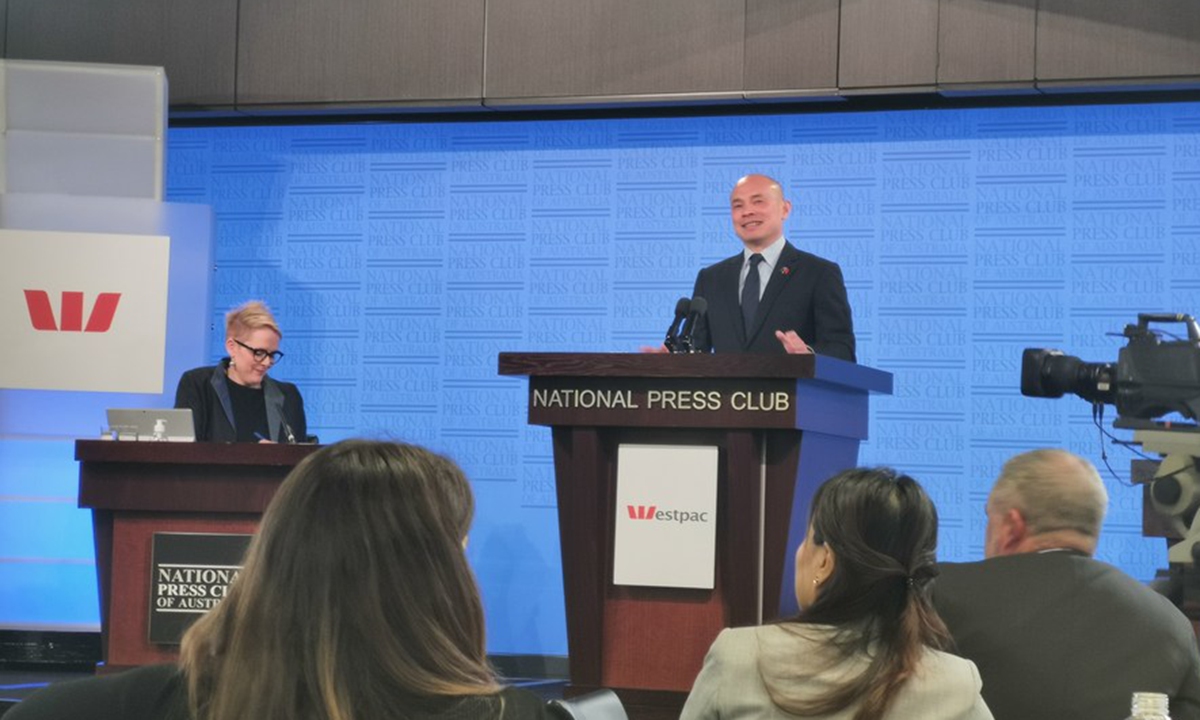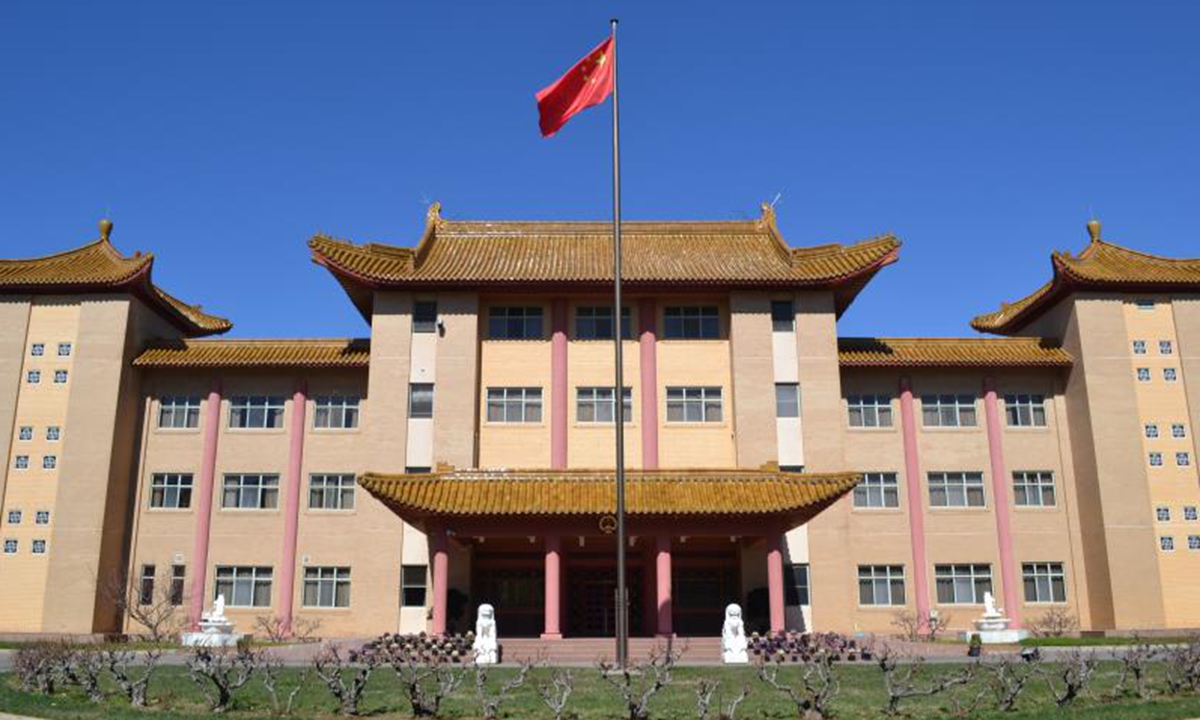China calls for respect, goodwill, fairness, vision to promote China-Australia relationship

Wang Xining, minister of the Chinese Embassy to Australia, delivers a speech at the Australia National Press Club in Canberra, Australia, Aug. 26. (Courtesy of the Chinese Embassy to Australia)
Wang Xining, minister of the Chinese Embassy to Australia, on Wednesday called for respect, goodwill, fairness and vision to promote China-Australia relationship in his speech at the National Press Club of Australia.
"We should respect each other's sovereignty and territorial integrity, and refrain from interfering in other's internal affairs," he said.
"We should respect each other's choice of social and political system and mode of development, and refrain from imposing one's own idea onto the other. We should respect each other's legal system and rule of law and refrain from interrupting the other's legal proceedings and undertakings."
He noted that as China's sovereignty was "constantly in jeopardy or disarray in modern history under intimidation and threat from external powers", the least thing China wanted to do was to inflict on others what China suffered.
While China respected Australia's sovereignty and did not interfere in Australia's internal affairs, it expected reciprocity, he said.
The second point Wang made was goodwill, with which, while in case of differences and disagreement, relationship between China and Australia would not be wrecked.
"When we the people with goodwill are confronted with a different methodology, we do not panic, because we know that deep in our hearts people hold dear the same core values, and a methodology will work only in good conditions and survive only with success," he said.
Photo taken on Aug. 27 in Australian capital Canberra shows the building of the Chinese Embassy to Australia. (Xinhua/Bai Xu)
"We the people with goodwill will not label others evil only because they have different understanding and interpretation of the worldly beings and affairs, nor will we reject fresh ideas and useful methods that offer us more opportunities and choices."

Photo taken on Aug. 27 in Australian capital Canberra shows the building of the Chinese Embassy to Australia. (Xinhua/Bai Xu)
"China is full of goodwill," he said. "We don't see Australia as a strategic threat, as there is no conflict of fundamental interest between us, and no major historical irritants to be healed."
Wang then emphasized the importance of fairness, with which China and Australia have achieved rapid trade growth.
"The two economies fit each other like tenon and mortise," he said. "We could serve as a classic case of comparative advantages, which if working well, would make Adam Smith chuckle in his grave. We could and should make it work the best."
He told audiences that China kept improving business environment, and in 2019, the World Bank ranked China the 31st in the world, up from 46th in 2018.
"I hope that Australia will remain high on the list, not to be dragged down for pushing foreign business or investment away on account of ill-founded and in many cases imported assertions of security breach, IPR infringement and forced technology transfer," he said.
The last word he explained was vision.
"Our vision is that both China and Australia will play active roles in promoting regional stability and prosperity and advocating world peace and development," he said.
"We remember Prime Minister Gough Whitlam for his visionary visit to China, Prime Minister Bob Hawke for his visionary proposition of APEC and Prime Minister John Howard for his visionary promotion of better understanding of China," he said. "Vision guides a country. Vision leads the world. Vision benefits our people."
In his speech, Wang also talked about Chinese people's own view of their country and expressed his wish for better relationship between the two countries.
"We should not let cold heart and dark mind cast shadow over our partnership," he said.
"We should not let narrow interest and myopic view misguide our exchange and interaction. We should not let outdated stereotype and plotted distortion mould our understanding of each other and the world. We should not let empty slogans and willful branding dictate our narratives of bilateral relationship. We should not let our younger generation be swathed in belligerency and deprivation of progressive thinking and inclusive society."
